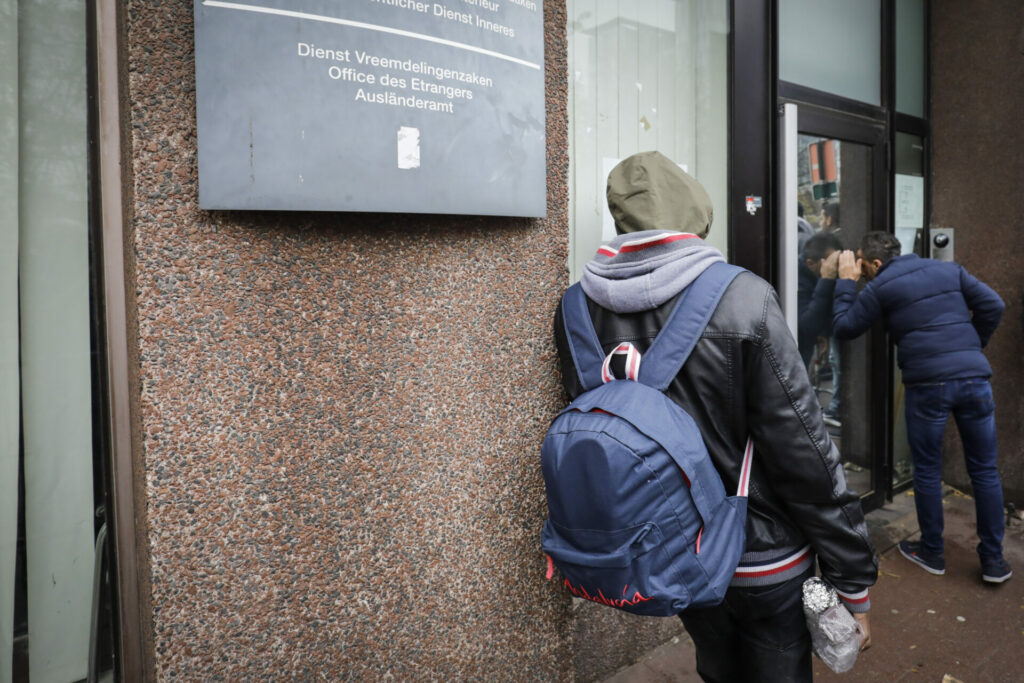The long-awaited text of the new migration law was presented on Wednesday. However, with the chances of law being passed before the June elections are slim, many have criticised the move.
On Wednesday, State Secretary for Asylum and Migration Nicole de Moor (CD&V) hosted a press conference where she presented what she said is the final new migration law, a rulebook that completely rewrites the 1980 Immigration Act and aims to ensure more control over migration.
Regulations in the current text have been updated in recent decades to reflect new European rules, but many believed this made it unreadable and unworkable. She claimed that the new text would make regulations more readable and clearer.
"Every year, a lot of labour migrants, students, EU citizens, au-pairs and refugee people are admitted to the territory," de Moor said. "Many are also refused entry or ordered to leave the territory. Clear legislation and procedures are much needed to give people quick answers."
Decade in the making
The intention for the new rules, which is one of the priorities of the current Vivaldi coalition government, dates back almost three decades. Former State Secretary for Asylum and Migration Theo Francken (N-VA) started it in the Michel government and de Moor's predecessor Sammy Mahdi was hoping to finalise the work.
However, it was de Moor who presented the text, consisting of 16 parts over almost 2,000 pages, on Wednesday. It not only aims to make the current rules clearer but also to reduce the workload.
For instance, police officers will no longer have to administratively detain people who are staying in the country irregularly to check their status, as under the new migration law, that information will end up in the national register.
EU nationals who want to work in Belgium also have to pass through municipal counters just once rather than twice. Now newcomers first need proof of registration with the city before being able to look for work through a temporary agency or an employer.
In addition to transparency and faster procedures, there will be several new anti-abuse provisions. For instance, families whose asylum application has already been rejected once, but who submit a new application in the name of one of the children, can no longer extend the right to reception this way. However, this abuse of the system is very rare in Belgium.
Not final
De Moor has been criticised for her decision to invite the press to present her text on Wednesday. The code stems from 19 basic principles determined by the Council of Ministers on 4 February two years ago, but as it stands, the text has not yet been passed by the government.
Francken argued that there has not been an inter-cabinet working group (IKW) held on it. "It is a pure publicity press conference because there is no chance of approval in the government and parliament before the elections," he said on social media.
De Moor's spokesperson confirmed to The Brussels Times that this is a text that needs further discussion within the government. However, the legislature in parliament will be dissolved at the end of April for the 9 June elections, meaning time for debates is limited. The fact both the Flemish Greens (Groen) and the Socialist Party (PS) are apprehensive, adds to the likeliness that it will not be rushed through.
Another worrying detail: the group of experts called in to help with the text to work quit in September, arguing it was not possible to achieve an outcome they supported before the end of the coalition period, Knack reported.
Francken called the bill a political fantasy. "After the elections, of course, there are new government negotiations and there is a good chance that this bill will not come in this form."

